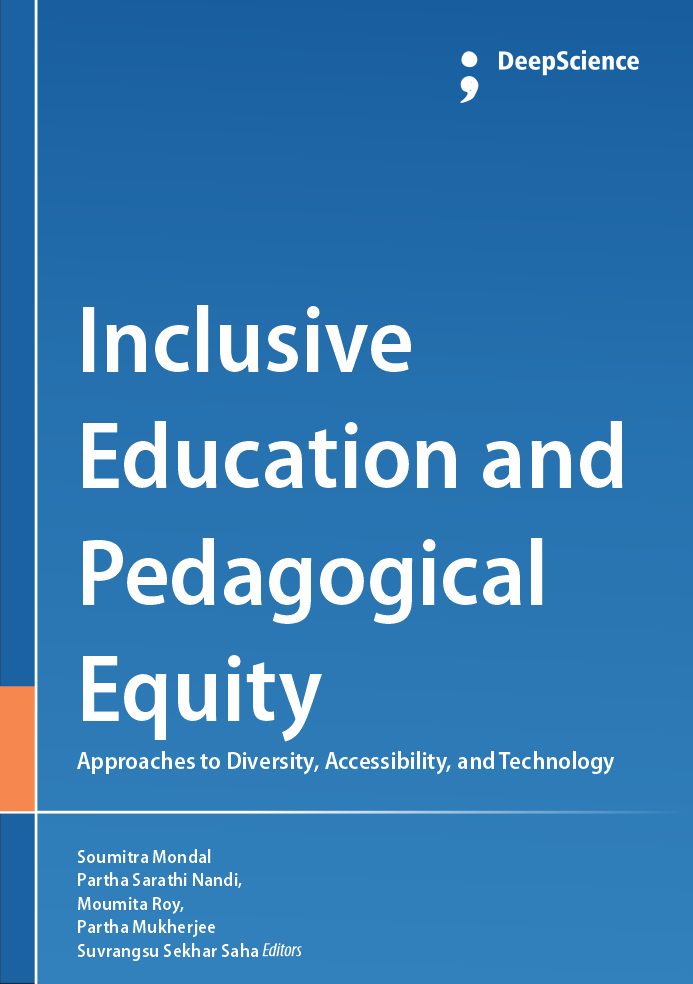Inclusive Education and Pedagogical Equity: Approaches to Diversity, Accessibility, and Technology
Keywords:
Inclusive education , Pedagogical equity, Education, Diversity, Digital equity, Inclusive pedagogy, Social justiceSynopsis
All chapters explore the challenges of pedagogy, technology, policy and culture and motivate how developments in teaching and learning highlight the common day-to-day obstacles.
This volume captures the complexity of inclusive education by dealt in principles and global practice in Chapter 1. Chapter 2 explores digital divides in distance education and international responses to digital justice. Chapter 3 adopts CRT in teacher education as the essential text. Chapter 4 examining programmed pedagogies against traditional instruction in the classroom. Chapter 5 examines how assistive technology influences VI students including its transformative impact and access. Chapter 6 focuses on gender and literacy: women’s education drives national development. Chapter 7 suggests the inequalities in tribal education between Indian states and calls for region-specific reforms. Community voices are the focus of Chapter 8. Chapter 9 confirms the importance of Mother Tongue Instruction in Early Childhood Education (ECE). Chapter 10, declares to study the Sanskrit literature under the great scholars, literatures. It also discusses the contributions of the Sanskrit literature and its importance at the foreign level.
This work focuses that inclusive education is not a mere educational reform but rather a moral imperative and a driver for progressive social change.
References
UNESCO. (1994). The Salamanca Statement and Framework for Action on Special Needs Education. Paris: UNESCO.
United Nations. (2006). Convention on the Rights of Persons with Disabilities (CRPD). New York: United Nations.
Booth, T., & Ainscow, M. (2011). Index for Inclusion: Developing Learning and Participation in Schools. Centre for Studies on Inclusive Education (CSIE).
Rose, D. H., & Meyer, A. (2002). Teaching Every Student in the Digital Age: Universal Design for Learning. Alexandria, VA: ASCD.
Florian, L. (2008). “Inclusion: Special or Inclusive Education—The Perspectives of Students.” Journal of Research in Special Educational Needs, 8(3), 124–129.
Slee, R. (2011). The Irregular School: Exclusion, Schooling and Inclusive Education. New York: Routledge.
Department of Education and Training. (2015). What Works in Inclusive Education? Australia: Government of Australia.
Singal, N. (2010). “Doing Disability Research in Developing Countries: A Perspective from India.” Disability & Society, 25(7), 773–785.
Hehir, T., Grindal, T., Freeman, B., Lamoreau, R., Borquaye, Y., & Burke, S. (2016). A Summary of the Evidence on Inclusive Education. New York: Institute on Disability and Public Policy.
OECD. (2012). Equity and Quality in Education: Supporting Disadvantaged Students and Schools. Paris: OECD Publishing.













